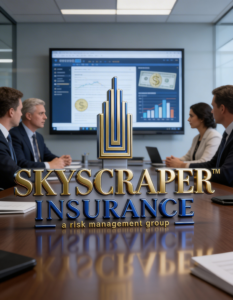As skyscrapers increasingly turn to solar energy to reduce their carbon footprint and operational costs, ensuring accurate property valuations becomes paramount for effective insurance coverage. In 2023, solar power accounted for 5% of the world’s electricity, a figure projected to grow significantly in the coming years, driven by both environmental concerns and economic incentives. The 2022 Inflation Reduction Act further incentivizes smarter energy use, with solar energy playing a pivotal role in meeting sustainability goals and reducing reliance on traditional energy sources.
However, determining the value of properties with solar installations isn’t always straightforward. Factors such as available space, rooftop geometry, and orientation all influence the practical power generation capacity of solar panels, complicating the valuation process. Emre Karagozlu, director of renewable energy valuation at JLL, suggests that the Discounted Cash Flow (DCF) approach offers a solution by allowing detailed input for a more accurate appraisal that captures the benefits of solar panels effectively.
Accurate valuations are crucial for various financial aspects, including financing, sales pricing, financial planning, and tax considerations. A precise valuation ensures that potential benefits, such as specialized tax credits and depreciation valuations, are appropriately accounted for, optimizing the return on investment for property owners and investors.
Navigating the complexities of solar panel valuations is essential for maximizing the benefits of solar energy adoption in skyscrapers and commercial real estate properties. By leveraging innovative valuation techniques and staying abreast of evolving industry standards, property owners can ensure that their investments in renewable energy infrastructure are accurately reflected in their insurance coverage, contributing to a more sustainable and resilient built environment.









